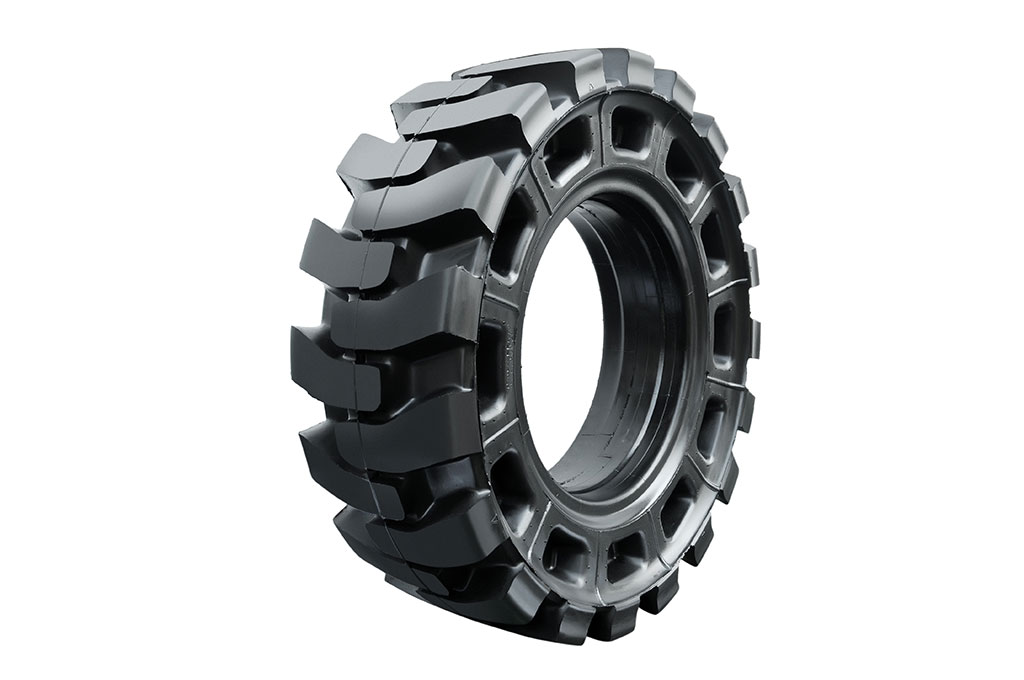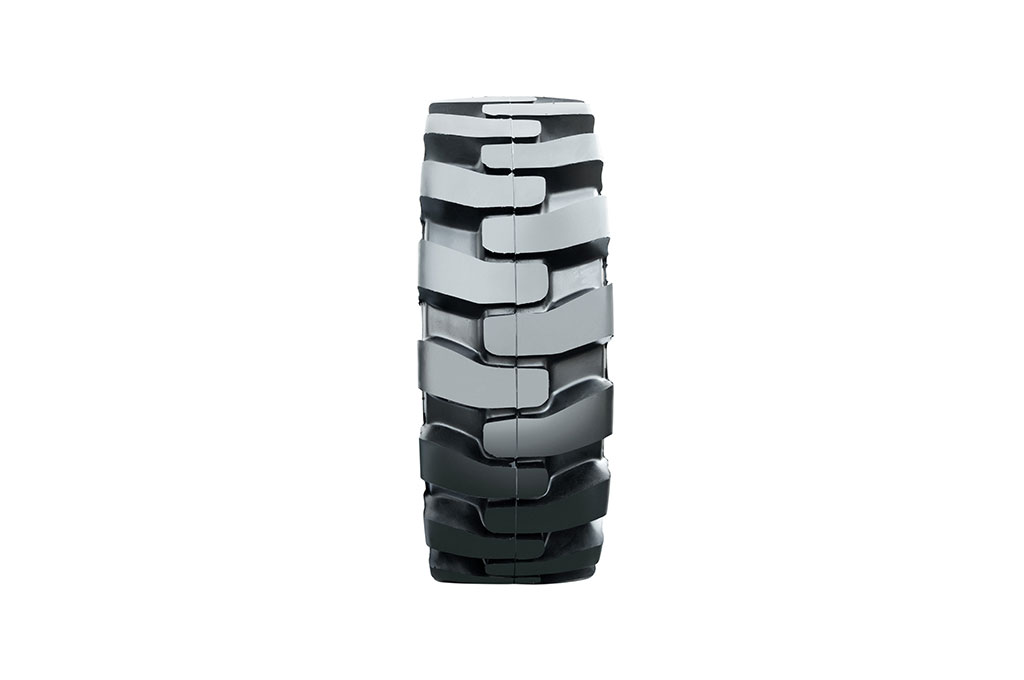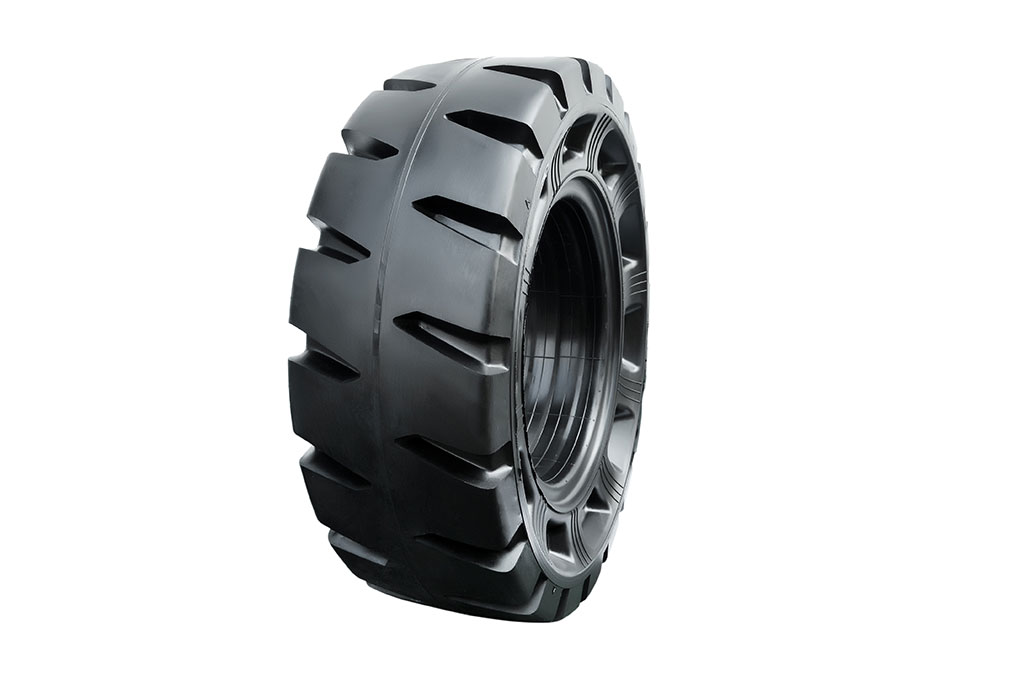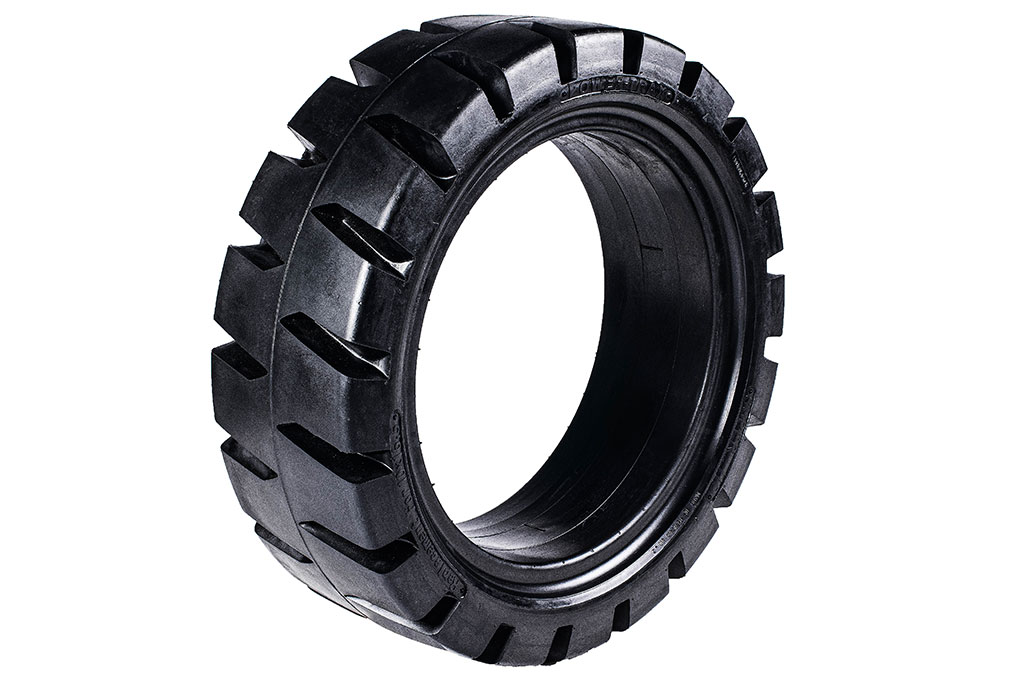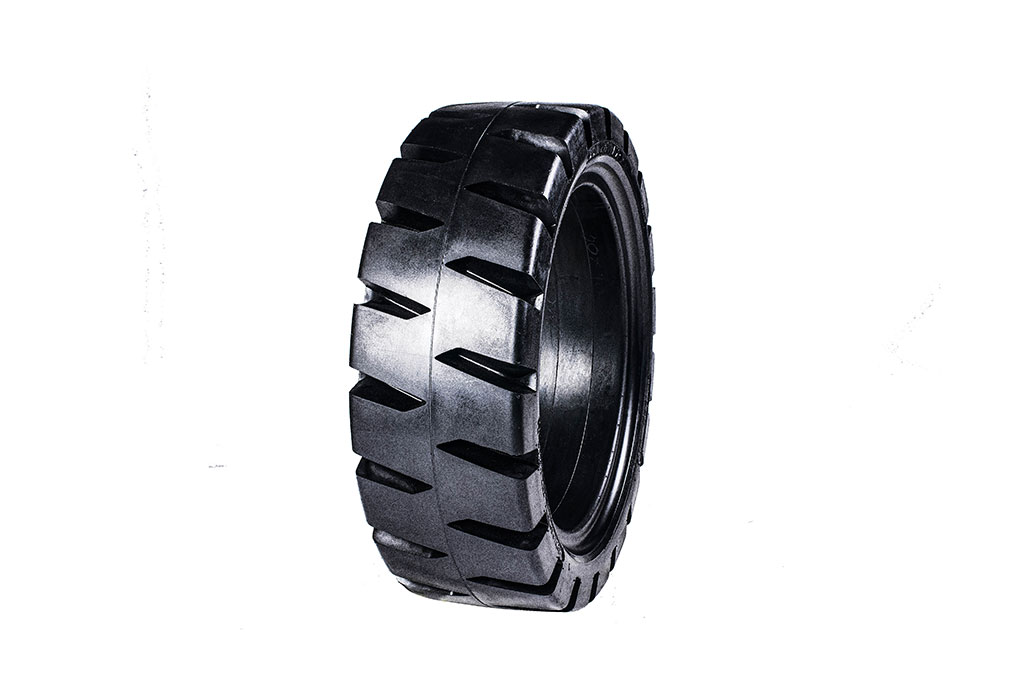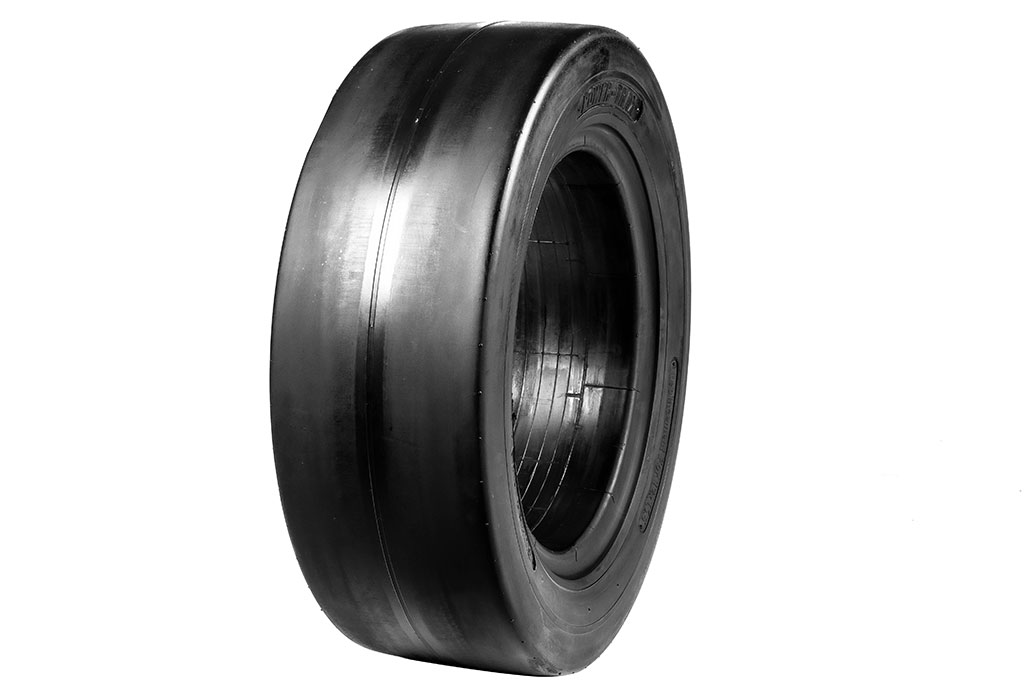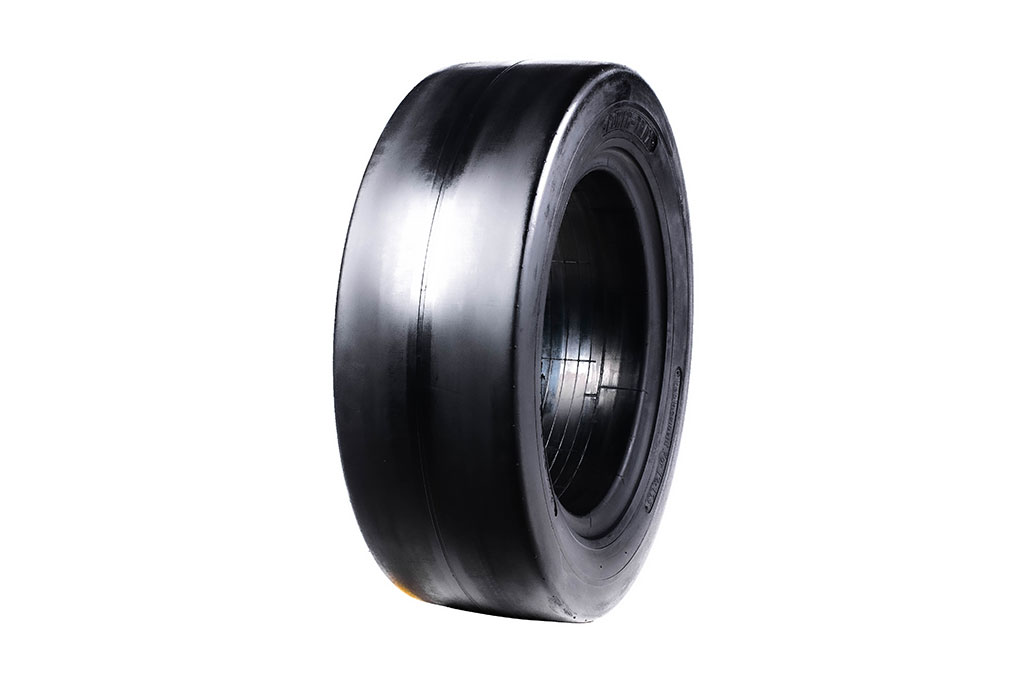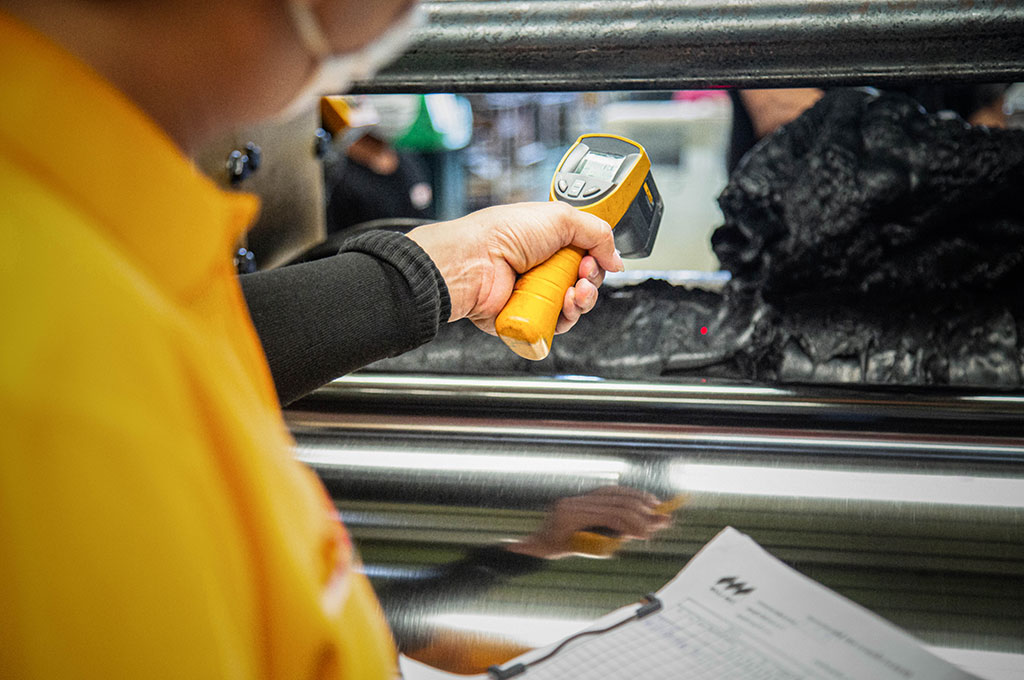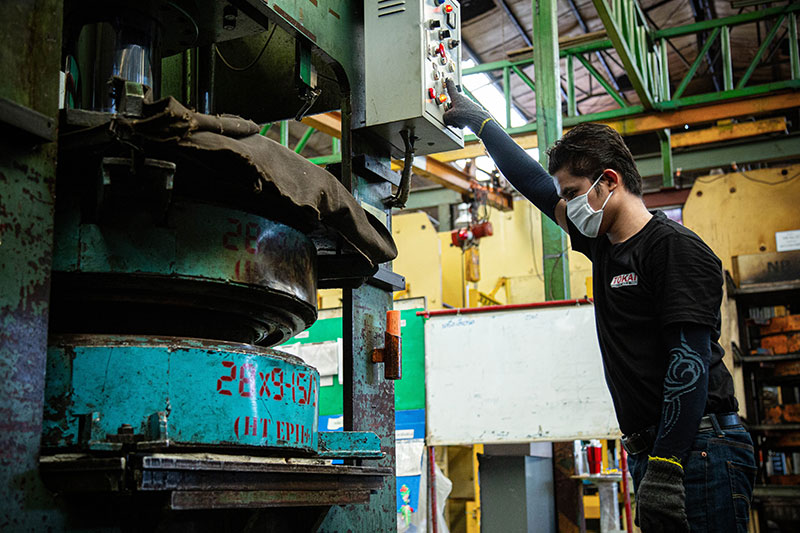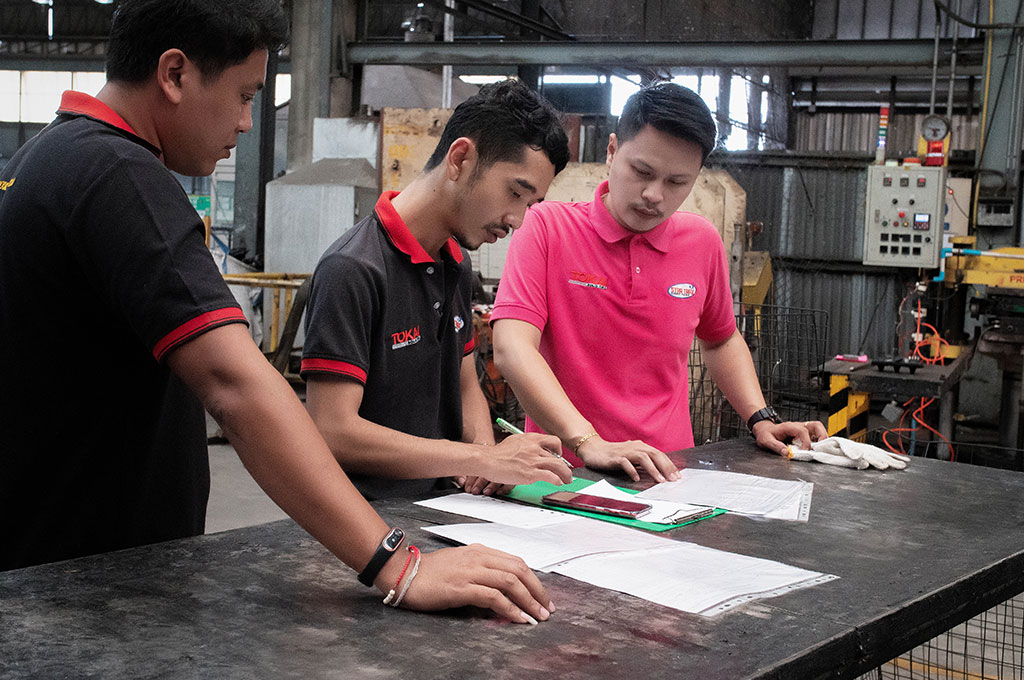TOKAI Solid Tires has been designing and producing skid steer tires for nearly two decades and they fall very much under the "no news is good news" rule. Our largest skid steer customer, who has sold thousands, told us recently
that they had never had a single warranty claim related to quality. In other words, TOKAI Solid Tire skid steer tires are completely reliable.
Even still, we thought we would throw together a quick FAQ to explain a few things. If you don't see your answer below, email us at [email protected] or call us at +66 95
642 6994 and ask us - we're here for you.
The All-Trac tire, mentioned above, is popular in places like the US for materials handling, construction and other applications where you need a smooth tire that can take punishment, but just enough tread to get
over obstacles that pop up.
Quite often, skid steer tires come in either aggressive R4 patterns or smooth solid patterns, which is what makes the All-Trac so atTractive for people who need a little
of both, but not one of either.
Those who have tried it where it's needed tell us that for specific applications it's the best tire out there, bang for the buck.
Square apertures are something we came up with as a solution to the problems posed by holes, which most people don't know about.
Well, you know that holes don't really do much of anything for ride quality.
It's a big old solid tire, a bunch of little holes help a little bit, but only so much.
However, holes have sharp edges that rip when caught on things, and, most importantly, they are usually designed
to intrude as close as possible to the center of the tire, coming from both sides, which means they nearly meet, creating a point of failure internally where they're close together.
Our square apertures,
on the other hand, are visibly a much larger aperture on the outside, but leave the core of the tire intact by not approaching the center as dramatically, which means you get a softer ride, better heat transfer
and a more stable tire.
Give them a try and see for yourself!
When we tell customers that our standard black tread layer is, other than additives needed to make a tire, pretty much made of all-natural rubber they almost don't believe it, until they take a look at the finish
when the tire rolls out of the container.
See, over time, one way a lot of tires have become cheaper (or more profitable for factories) is by taking out natural rubber and putting in other stuff.
Sometimes, in some applications that's a good thing - and we do that too, where it makes sense for our customers - but our basic tread layer hasn't been touched in many. many years, except to make minor improvements
in the oils and additives that go into any part of a tire.
Thailand produces more natural rubber than any country in the world, look it up, and that's why we can afford to make such a high quality tire
with all-natural rubber. It's also why when oil prices skyrocket, we don't need to worry about raising the cost of our tires the way some factories who rely heavily on synthetic rubber might.
Natural
rubber, among other things, provides greater rebound resilience, meaning that every time that tread rolls down under pressure and then rolls back up, the natural rubber takes less of a beating than synthetic
rubber would. Additionally, natural rubber holds together better after getting gashed or ripped on. When you see cracks or tears in a synthetic tire you can start the clock on it, while a natural rubber tire
taking a beating from cuts and rips is more likely to hold together and not fail.
You just can't beat all-natural Thai rubber, and that's why we use it - you should too.
People often ask us, "What's your warranty?" and the answer is one of those answers that's so simple that it flummoxes a lot of folks:
If we broke it, we'll fix it. Period.
Just like
any other company, large or small, we've turned out a bad product here and there over several decades, and when we have - you can ask our customers - we've studied the situation, put our engineers on it, looked
up every detail of production for that tire (we keep extensive records on every single tire, what goes into it, how it got made and who made it) and if we did something wrong then we've warrantied the tire.
Done deal.
We know in a world of 12 page warranties citing everything from act of God to international terrorism you're used to seeing a telephone book's worth of language to explain a very simple
concept like "we stand behind our products," but we think it's best not to complicate the obvious and just say, you know, we stand behind our product.
Anyone who needs a ten page contract to tell you
how they stand behind their product, well, the other 9,000 words in there probably aren't there to explain how they stand behind their product.

